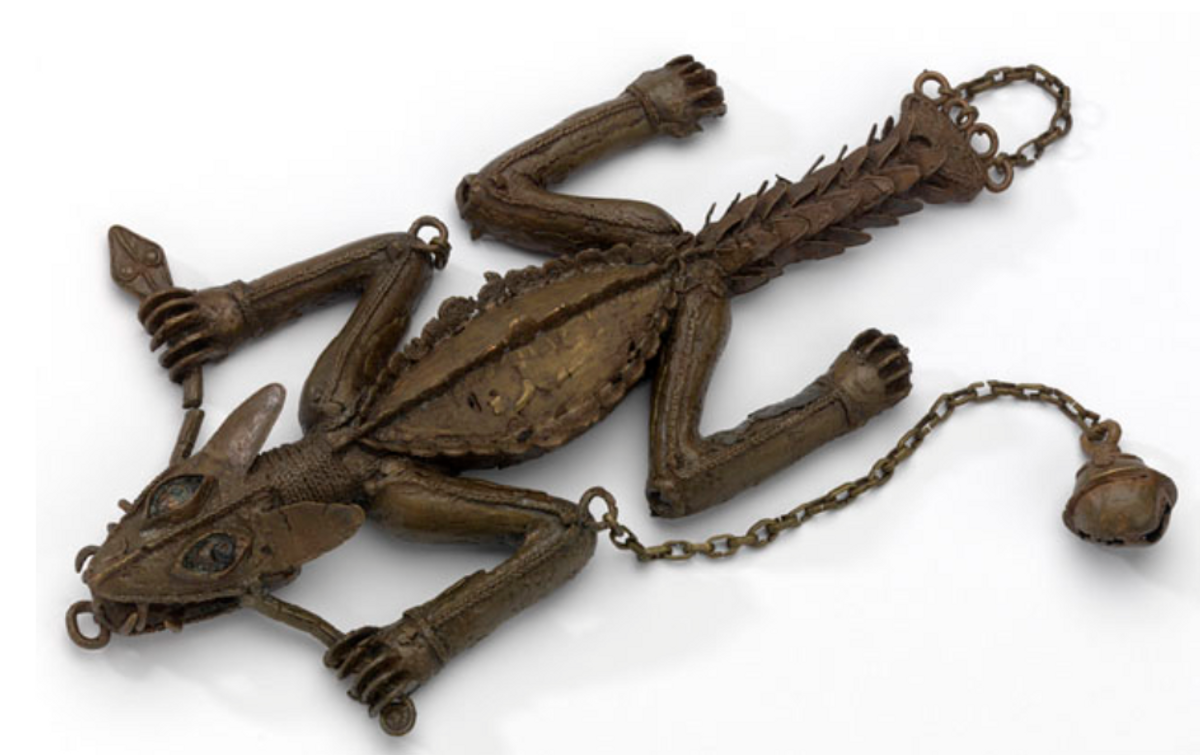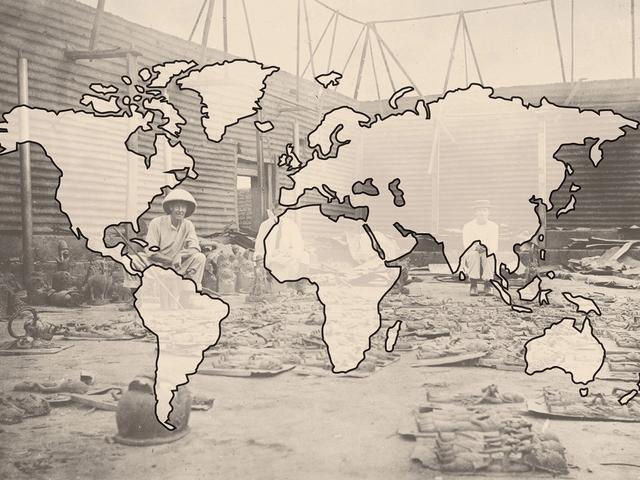Glasgow City Council in Scotland has voted to return 17 Benin bronze artefacts from the city’s museum collections to Nigeria in one of the largest ever repatriation agreements approved by a UK institution. The council also voted to return 25 Native American items from the Lakota people that were sold and donated to the city’s museum collection by the Lakota interpreter George Crager in 1892. Some of them were taken from the Wounded Knee massacre site (December 1890) in the US state of South Dakota. Seven Indian antiquities will also be returned to their country of origin.
According to the UK Museums Association, Glasgow City Council's cross-party Working Group for Repatriation and Spoliation met on 1 March and recommended the return of the requested cultural artefacts to their originating communities; this decision was approved at a meeting of the council’s City Administration Committee on 7 April.
The requested Benin bronze objects were taken from ancestral altars at the Royal Court of Benin during the British Punitive Expedition of 1897, according to the committee meeting minutes (“Benin bronzes” also includes objects made of brass and ivory and not only bronze). Glasgow City Council’s museums subsequently acquired them from various sources in Britain as gifts, bequests and from auction houses. The majority of these are on display within Kelvingrove museum while some are securely stored at the Glasgow Museums Resource Centre, says a spokesman for Glasgow Life, the charity that runs the city’s museums.
The “legal title [of the bronzes] may be transferred to the Nigerian National Commission for Museums and Monuments (NCMM), and the artefacts may remain in the city as items on loan to Glasgow Life Museums until such time as transit is requested by NCMM or becomes practicable. This is yet to be determined. It is estimated that return transit of these artefacts to Benin could be in the region of £30,000,” says the minutes.
The meeting document also states that “six of the [Indian] artefacts were stolen by the donors from Hindu temples and shrines in different states in India during the 19th century, while the seventh was illegally purchased as a result of theft from the owner, sold and smuggled out of India. All seven items were subsequently gifted to the city’s museum collection.” The Indian government has agreed to meet the full cost of the return of the artefacts.
Meanwhile, the 25 Lakota cultural items—some of which are housed at Kelvingrove—have been requested by the Le Beau family, who are representing the Cheyenne River Sioux Tribe and the Oglala Sioux Tribe. “The Lakota items in the city’s museum collection that belong to the Oceti Sakowin [Oglala Sioux Tribe] convey the continuity of the ancestors who created the items. The Marcella LeBeau Family are direct Oceti Sakowin descendants of the Wounded Knee massacre,” say the meeting minutes. Earlier this year Native American activists called for the return of artefacts stripped from slain Lakota people during the massacre.
Duncan Dornan, the head of Museums and Collections at Glasgow Life, says in a statement: “The return of these objects from Glasgow Life Museums’ collection to their rightful owners represents the largest-ever repatriation of cultural artefacts from a Scottish museum and is a significant moment for our city; specifically, the repatriation of seven Indian antiquities is the first of its kind to India from a UK museum.”
Last year, the Horniman Museum and Gardens in south London said that it is considering restituting objects in its collection seized from Benin City. A recent policy document sets out “transparent policies and procedures by which communities [in Africa] can enter into discussion with [the museum] about the future of this material, including its possible return”. The museum owns 49 works from Benin City including 15 brass plaques, weapons and jewellery.



